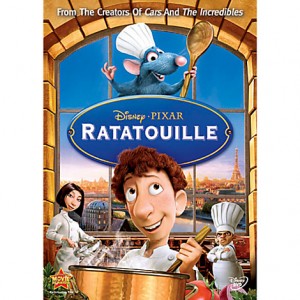A guest post by Ann Cummins.
Well, that’s not quite right. They were New Yorkers just beginning to mutate. One was a writer, the other a tailor. The bar was crowded. It was karaoke night.
The writer was miffed. Had a bad week. It wasn’t his writing. His writing was great. First novel done and sold, review copies out; there would be royalties, he was sure.
But he’d spent the week trying to track down some fool tailor, who was never in his shop. The writer was getting married. This tailor was supposed to be the best, and the writer wanted the guy to sew him a wedding shirt. But the dang tailor was MIA, which made the writer’s skin crawl. He liked people to be where they said they’d be when they were supposed to be there.
The tailor, his skin was crawling, too. Some sub-species writer had flamed him on Yelp. For ever-so-long, the tailor had enjoyed a 5-star rating. “I’ll pan him on Amazon,” the tailor groused. “Just wait ‘til his book comes out.”
The writer’s day was getting worse. There were so many people between him and the microphone. He needed to vent. He wanted an audience. In frustration, he shouted to the room in general: “I’ll yelp him again. I’ll give five-stars to his competitors.”
“Who?” the room shouted back. So the writer told the story, and the tailor, he listened.
Blood in his eye, he could barely see the abomination that was calling himself a writer. “You!” he shouted.
The writer stared in horror at the needle-fingered couturier.
Both lunged. One skittered spider-like, the other bull-dogged: Over shoulders and under legs, they tore through the crowd in a dead heat toward the stage, each desperate to get to that microphone first.
(For details on the non-fictional story, go to: http://www.dailyfreeman.com/general-news/20130820/writers-new-woe-revenge-e-reviews)
*****
I published a short story collection, Red Ant House, with Houghton Mifflin in 2003. I was lucky. They assigned me a publicist, who sent out many review copies, followed up, and as a result my book was widely reviewed.
It was my first book, and I didn’t have much name recognition. My editor suggested I start reviewing books. Get my name out there. So I contacted the wonderful Oscar Villalon, who, at the time, was Book Review Editor for the San Francisco Chronicle. Oscar gave me a shot. Actually, he assigned me a 250-word review for a 600+ page tedious historical novel. A challenge? Yes. But I guess I did OK, because for several years after that, Oscar assigned me books. I graduated to the 800-word review.
But then, the congenial world of writing and book reviewing morphed into what it is now: the free-for-all electronic media driven Tower of Babble (not that that’s a bad thing, but it’s definitely a new frontier). Newspaper sales dwindled. Editors slashed or eliminated their book review sections.
In 2007, I hit the trail, promoting my new book, Yellowcake. The scene on the street was depressing: vacant buildings where bookstores used to be; conferences where bug-eyed writers paid for a ten-minute shot at sweet-talking an agent. And where were all the readers? I, and many writers I know, gave readings to empty rooms in a few holdout bookstores. The only writers getting any attention were showboats emboldened to camp it up and draw blood if necessary. Whatever it took to get an audience.
I decided to go home: To do what I could to promote writing and reading in a civil environment at the grassroots level. I contacted my local NPR station in Flagstaff, Arizona, KNAU. We launched Southwest Book Reviews. I aimed to review books by small regional publishers that might not get the wide media attention big bucks publishers could buy.
So how does a writer get reviewed these days? My advice: Read. Work at the grassroots level to promote reading. Contact favorite magazines, radio stations, websites. You’d be surprised how many will say yes to a well-written review about books by favorite and new authors.
What goes around comes around. Writers who read and write intelligently about books inspire readers. Readers, we hope, get excited about books. We all fan the dying embers, and everybody wins.
 Ann Cummins is the author of a short story collection, Red Ant House (Mariner, 2003) and a novel, Yellowcake (Houghton Mifflin, 2007), a San Francisco Chronicle notable book and Best of Kirkus. Her stories have appeared in The New Yorker, McSweeney’s, and elsewhere and have been anthologized in a variety of series including The Best American Short Stories, The Prentice Hall Anthology of Women’s Literature, Best of McSweeney’s, and The Anchor Book of New American Short Stories. A 2002 recipient of a Lannan Foundation Literary Fellowship, she’s a graduate of Johns Hopkins University and the University of Arizona writing programs. She’s on the fiction faculty at Northern Arizona University and the Queens University low-residency program in Charlotte, North Carolina.
Ann Cummins is the author of a short story collection, Red Ant House (Mariner, 2003) and a novel, Yellowcake (Houghton Mifflin, 2007), a San Francisco Chronicle notable book and Best of Kirkus. Her stories have appeared in The New Yorker, McSweeney’s, and elsewhere and have been anthologized in a variety of series including The Best American Short Stories, The Prentice Hall Anthology of Women’s Literature, Best of McSweeney’s, and The Anchor Book of New American Short Stories. A 2002 recipient of a Lannan Foundation Literary Fellowship, she’s a graduate of Johns Hopkins University and the University of Arizona writing programs. She’s on the fiction faculty at Northern Arizona University and the Queens University low-residency program in Charlotte, North Carolina.




